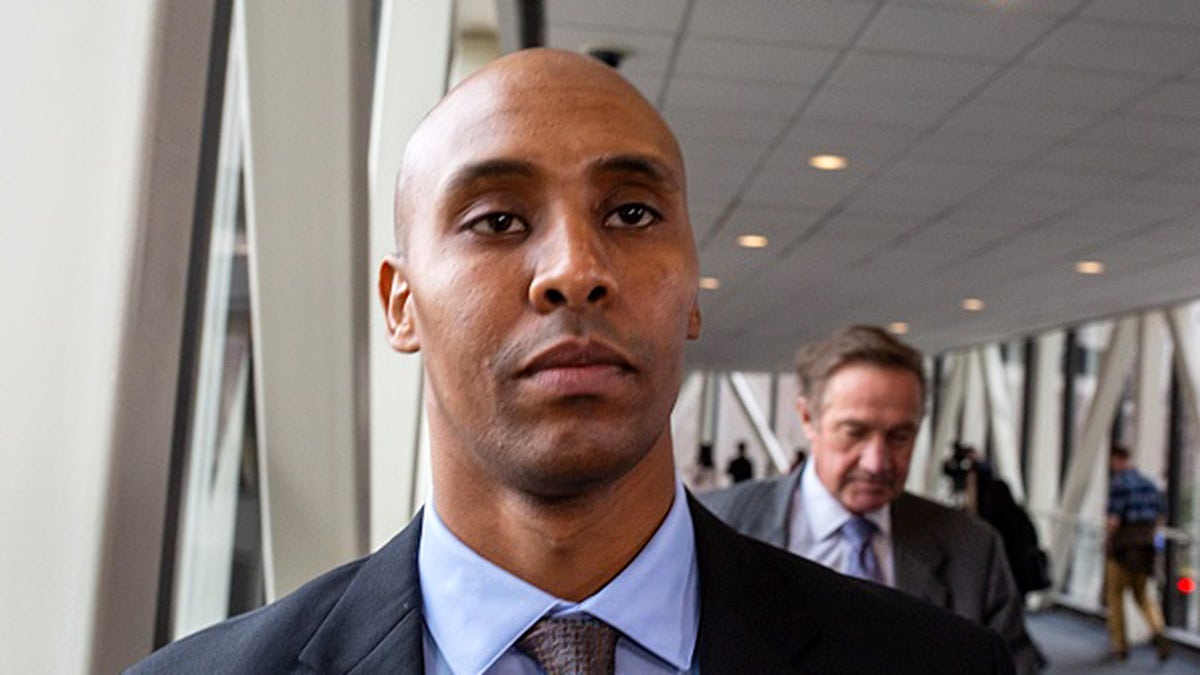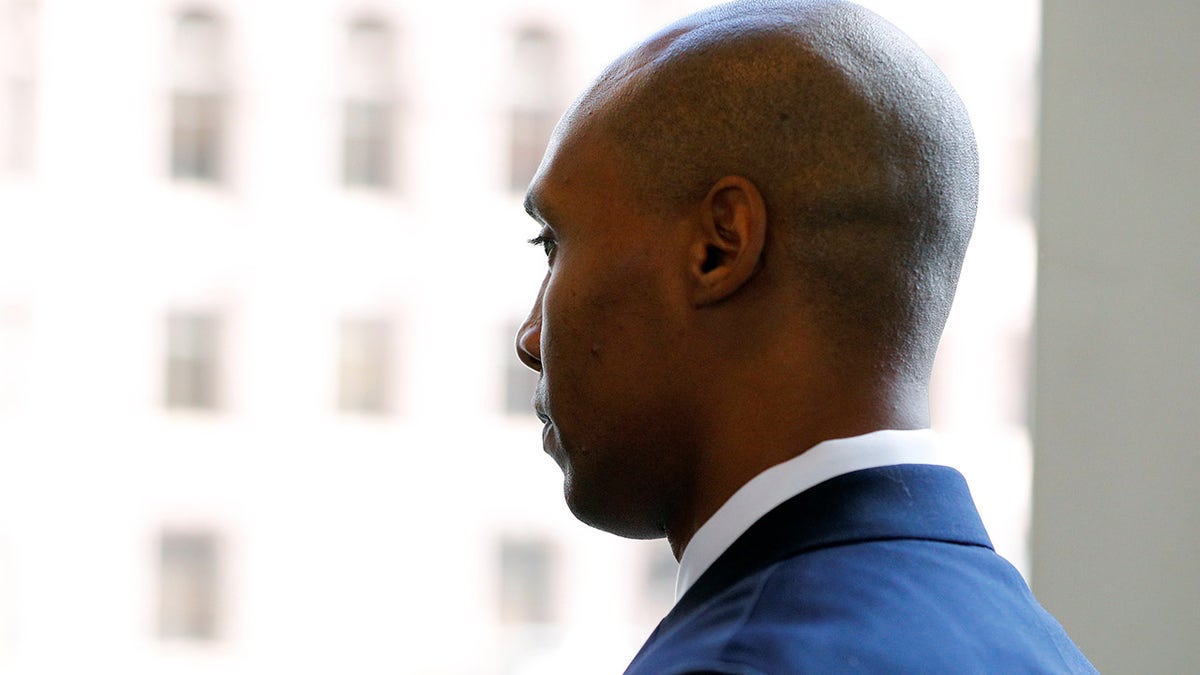Homan: Biden's CBP nominee is 'perfect choice' for open borders
Fox News contributor Tom Homan on President Biden’s border crisis.
MINNEAPOLIS (AP) — A Minneapolis police officer who fatally shot an unarmed woman after she called 911 to report a possible rape happening behind her home will be sentenced on a lesser charge Thursday after his murder conviction was overturned in a case that drew global attention and was fraught with the issue of race.
Mohamed Noor was initially convicted of third-degree murder and manslaughter in the 2017 fatal shooting of Justine Ruszczyk Damond, a 40-year-old dual U.S.-Australian citizen and yoga teacher who was engaged to be married. With his conviction and sentence for murder thrown out, he could be out on supervised release within months.

Former Minneapolis police officer Mohamed Noor leaves the Hennepin County Government Center in Minneapolis, Minnesota on April 2, 2019. - Jury selection began April 1, 2019, in the murder trial of a former Minnesota police officer who fatally shot an unarmed Australian woman, provoking outrage in the United States and in the victim's home country. Prosecutors say Somali-American Mohamed Noor opened fire on Justine Damond in Minneapolis in July 2017 while seated in the passenger seat of his squad car. (KEREM YUCEL/AFP via Getty Images)
Last month, the Minnesota Supreme Court tossed out Noor’s murder conviction and sentence, saying the third-degree murder statute doesn’t fit the case. The justices said the charge can only apply when a defendant shows a "generalized indifference to human life," not when the conduct is directed at a particular person, as it was with Damond.
Experts say the ruling means the third-degree murder conviction earlier this year against former Minneapolis police officer Derek Chauvin in George Floyd's 2020 death likely also will be tossed out. But that would have little impact because Chauvin was also convicted of a more serious second-degree murder charge in Floyd's death. Chauvin was sentenced to 22 1/2 years.
Noor testified at his 2019 trial that he and his partner were driving slowly in an alley when a loud bang on their police SUV made him fear for their lives. He said he saw a woman appear at the partner’s driver's side window and raise her right arm before he fired a shot from the passenger seat to stop what he thought was a threat.
He was sentenced to 12 1/2 years on the murder count and had been serving most of his time at an out-of-state facility. Noor will be resentenced for his second-degree manslaughter conviction, with state guidelines calling for a range of 41 to 57 months and a presumptive sentence of four years.
His attorneys, Tom Plunkett and Peter Wold, have asked for 41 months, citing Noor's good behavior behind bars and harsh conditions he faced during many months in solitary, away from the general prison population. Prosecutors are seeking 57 months.
Noor, who was fired after he was charged, has already served more than 29 months. In Minnesota, inmates who behave well typically serve two-thirds of their prison sentences and the remainder on supervised release. If Noor gets the presumptive four years, he could be eligible for supervised release around the end of this year.
If the judge sentences Noor to 41 months, he could be eligible for supervised release — commonly known as parole — right away, though in such situations defendants are typically briefly returned to prison to work out logistics of the parole.

Mohamed Noor walks out of the courthouse during a recess on the first day of opening arguments of his trial, charged in the 2017 fatal shooting of 40-year-old Australian woman Justine Ruszczyk Damond, in Minneapolis, Minnesota, April 9, 2019. (REUTERS/Adam Bettcher)
DEMOCRATS RESURRECT ‘DEFUND THE POLICE’ WITH VACCINE MANDATES AGAINST LAW ENFORCEMENT: JAMES CRAIG
Noor can make a statement at Thursday’s hearing. At his original sentencing in 2019, he got emotional as he expressed regret for what he had done and apologized to Damond’s family.
Damond's family members came from Australia for the 2019 trial, but they were expected to have statements read on their behalf Thursday.
Damond’s death angered citizens in the U.S. and Australia, and led to the resignation of Minneapolis’ police chief. It also led the department to change its policy on body cameras; Noor and his partner didn’t have theirs activated when they were investigating Damond’s 911 call.
Noor, who is Somali American, was believed to be the first Minnesota officer convicted of murder for an on-duty shooting. Activists who had long called for officers to be held accountable for the deadly use of force applauded the murder conviction but lamented that it came in a case in which the officer is Black and his victim was white. Some questioned whether the case was treated the same as police shootings involving Black victims.
CLICK HERE TO GET THE FOX NEWS APP
Days after Noor’s conviction, Minneapolis agreed to pay $20 million to Damond’s family, believed at the time to be the largest settlement stemming from police violence in Minnesota. It was surpassed earlier this year when Minneapolis agreed to a $27 million settlement in Floyd's death just as Chauvin was going on trial.










































